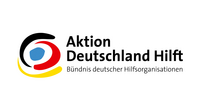Collaboration
Voluntary Collaboration
Emergency pedagogical crisis missions are usually two to four week long interventions in catastrophe regions (i.e. after a natural disaster or after armed conflicts). The task of the pedagogical crisis intervention team is to provide acute pedagogical first aid for children and youths, traumatised as a result of catastrophes. The goal is to alleviate the suffering of those affected through pedagogical therapeutic measures, in order to prevent or lessen possible long-term consequences.
Collaboration is voluntary and cannot be paid.
Requirements:
- In order to participate in a mission, one must have completed training and/or studies in the area of pedagogy (education), psychology, medicine, art therapy, eurhythmy or in a similar field
- In-depth knowledge of Waldorf pedagogy is a requirement. Ability to speak English and German is also obligatory; knowledge of further foreign languages is advantageous.
- Because shortly before an assignment, a lot of information needs to be exchanged quickly, regular access to the internet is imperative
- In addition to professional qualifications psychological resilience is above all of great importance
The following are important questions, which each person should answer honestly. These questions have to be answered for one’s self.
Important Questions:
- Am I mentally and emotionally resilient?
- Do I have experience in disaster zones?
- Do I trust myself to deal with distressing situations?
- Am I (physically) healthy and fit?
- Can I integrate into the team?
- Can I also take on a subordinate role?
- Can I survive without much individual space and privacy?
- Can I live and work in very basic hygienic conditions?
- Am I personally and professionally flexible in order to do the diverse kinds of work on the ground?
- Can I stay calm in extreme situations?
- Am I prepared, to recognize my weaknesses, when I am overwhelmed?
- Is my employer in agreement with the mission?
- Is my family in agreement with the mission?
Another important point is to consider one’s motivation to take part in such a mission.
- Why would I like to take part in such a mission?
- What do I expect from myself?
Problems and Difficulties that could arise
So called "first responders" can develop problems during missions, which are caused by the extreme demands in crisis and/or catastrophe regions.
Overload
The resources of "first responders" can be quickly depleted when they take few rest breaks for themselves.
Boundaries
Inexperienced aid workers can have trouble creating boundaries from their work. This can lead to feelings of guilt when one has fun or is doing well.
Confrontation with suffering
The confrontation with the effects of armed conflict or natural disasters can be very straining. Above all the suffering of the people with whom the aid workers have direct contact can lead to so called secondary traumatisation, a traumatisation of the aid worker.
Problems in the team
Depending on the situation in a country, it is not always possible for one to have his own space. Sometimes the safety situation does not allow for example being alone on the streets at night.
Patience Practice
One of the most important practices in crisis missions is patience. A mission often begins with waiting, waiting, waiting. When the work has begun, it can be very unstructured, sometimes for reasons that aren’t always apparent. This requires a high level of patience and calm.
Mission Procedure
Waiting is one of the most important things an emergency pedagogue must be able to do! Crisis interventions are marked by unforeseen things happening, things becoming unstructured, and procedures having to be quickly and sometimes without obvious reason changed. This requires patience, calm, and the ability to adapt. Nonetheless, there is a kind of ideal typical daily order of events, which is adjusted to fit the specifics of each assignment.
Daily Structure (prototypical)
- morning circle (aphorism, eurhythmy)
- breakfast
- 1st work block
- 2nd work block
- midday break/lunch
- 3rd work block
- 4th work block
- dinner
- discussion of work (looking back at the previous day, ahead to the next day)
- personal reflexion
Even during very chaotic and unpredictable circumstances, the team attempts to keep to a daily procedure, especially the morning circle and the evening discussion.
The team members are responsible for the contentual design of their work. This means that each member must arrange for the materials required for their work. Coordinators at the Friends help in advance with the provisioning of materials etc, but the iniative must come from the team members.

Volunteer Work
Without the energetic support, the engagement and the collective work on the ground of volunteer colleagues, emergency pedagogy would not be possible. The diverse composition of teams, made up of doctors, psychologists, pedagogues, therapists and others with an anthroposophishic background are the key to an effective, relief-providing mission. continue


